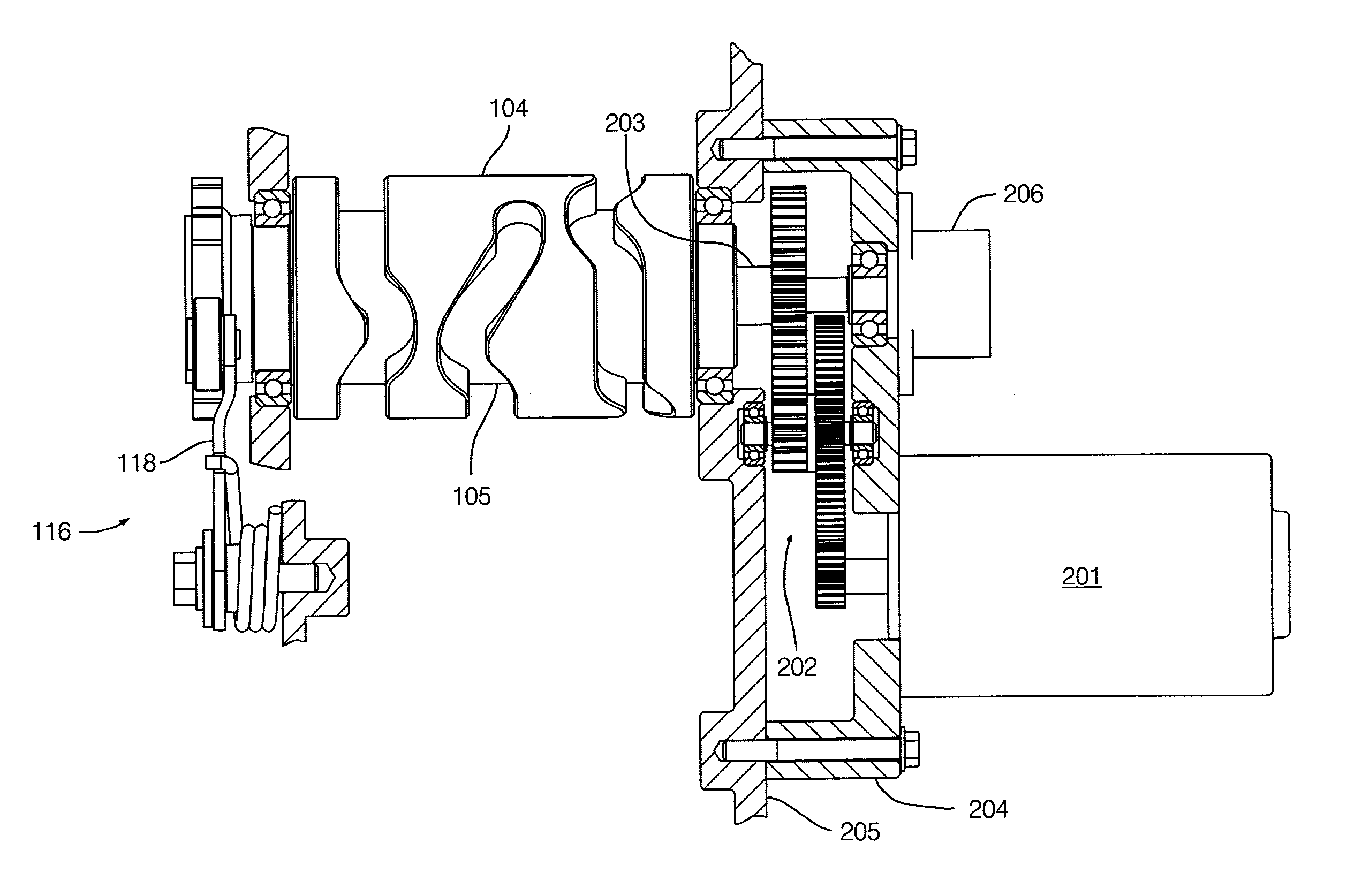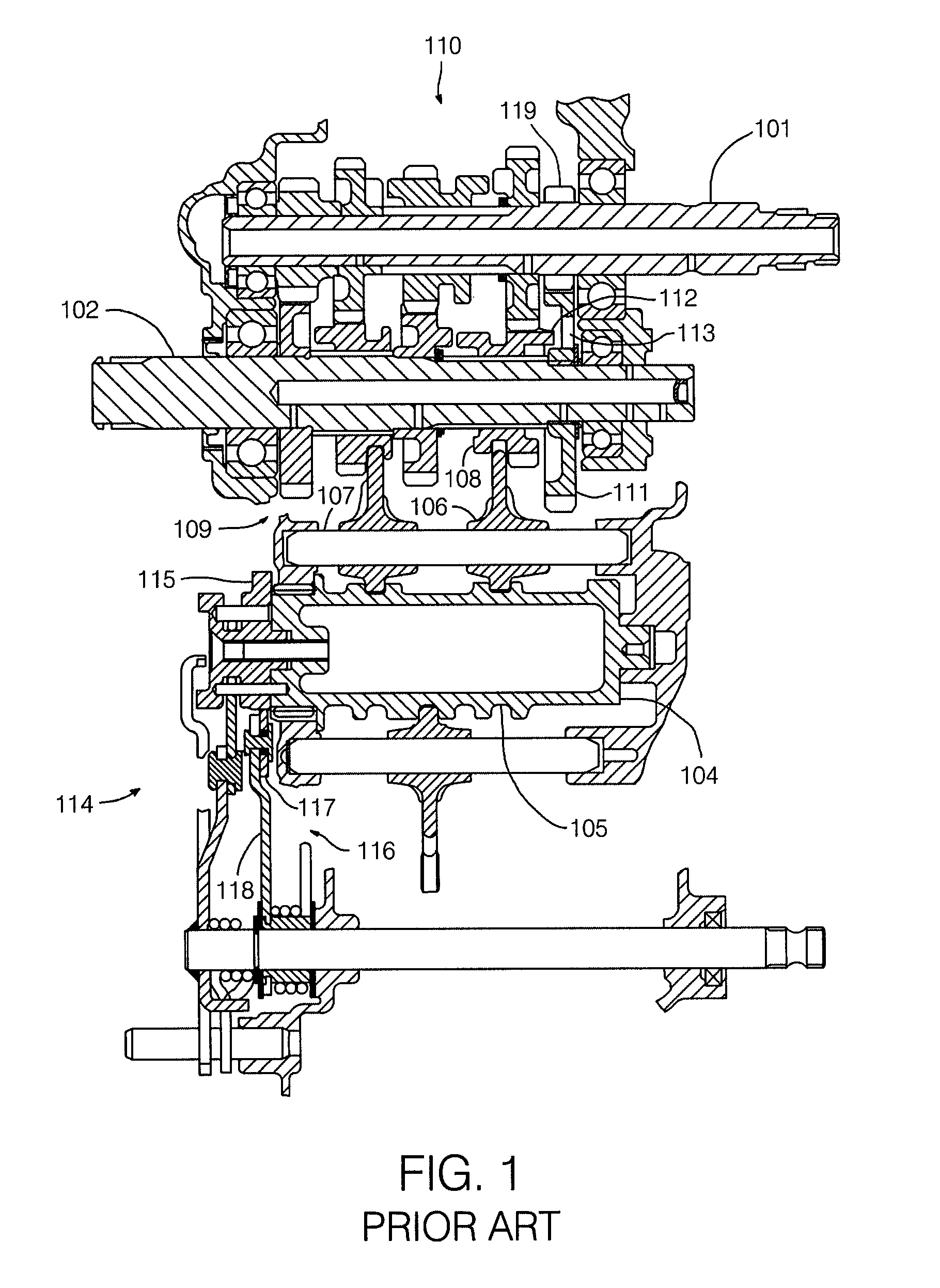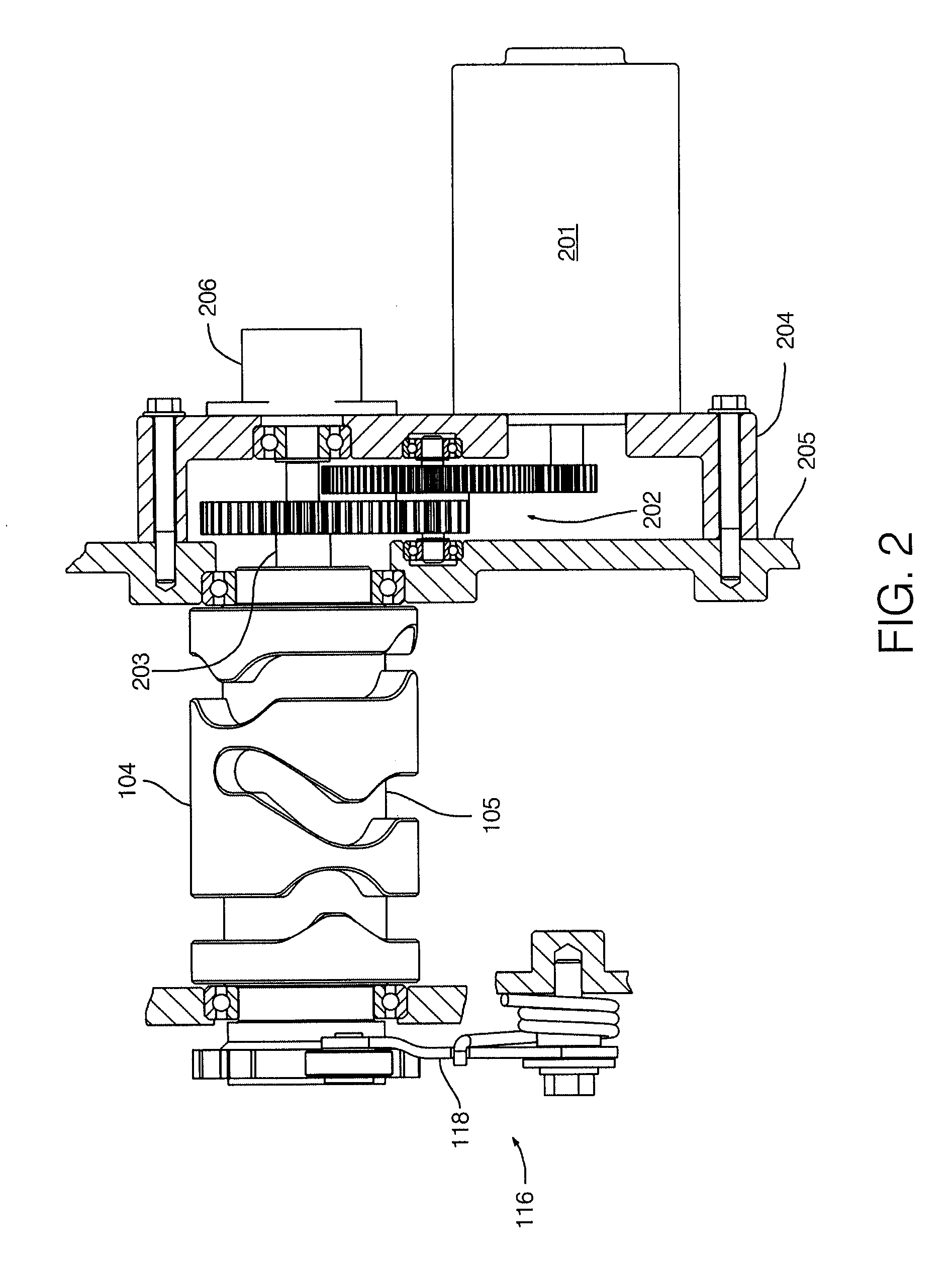Sequential transmission shift system
a transmission shift and sequence technology, applied in the direction of instrumentation, electric digital data processing, gearing control, etc., can solve the problems of system calibration, system performance poor, and further loss of precision
- Summary
- Abstract
- Description
- Claims
- Application Information
AI Technical Summary
Benefits of technology
Problems solved by technology
Method used
Image
Examples
Embodiment Construction
[0031]FIG. 2 shows one embodiment of the invention comprising a control motor 201 driving the selector drum 104. A cam indexer 116 having a series of impressions therein biases the selector drum 104 into a fixed number of gear positions using a biased pawl 118. The control motor 201 may drive the selector shaft 203 through a series of selector shaft gears 202. The control motor 201 may incorporate a position sensor, such as a Hall effect sensor, to determine the position of the control motor 201.
[0032]The selector shaft gears 202 may include spur gears, bevel gears, helical gears and hypoid gears. In a preferred embodiment the selector shaft gears 202 would not include a worm drive arrangement, as worm gear arrangements are typically poor mechanical transmitters of reverse torque, and therefore may not provide good feedback to a torque sensor. Worm gears are helical gears having a helix angle that does not exceed 50 degrees.
[0033]The invention may also comprise a position sensor 206...
PUM
 Login to View More
Login to View More Abstract
Description
Claims
Application Information
 Login to View More
Login to View More - R&D
- Intellectual Property
- Life Sciences
- Materials
- Tech Scout
- Unparalleled Data Quality
- Higher Quality Content
- 60% Fewer Hallucinations
Browse by: Latest US Patents, China's latest patents, Technical Efficacy Thesaurus, Application Domain, Technology Topic, Popular Technical Reports.
© 2025 PatSnap. All rights reserved.Legal|Privacy policy|Modern Slavery Act Transparency Statement|Sitemap|About US| Contact US: help@patsnap.com



